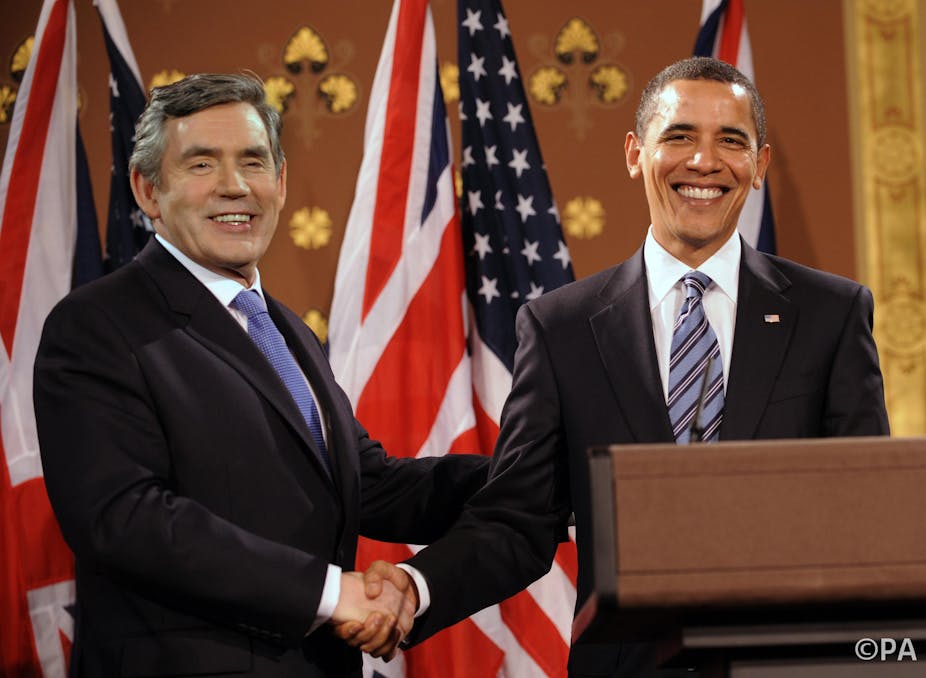The average American may struggle with a keen understanding of exactly how the UK is made up, but it’s safe to say that there will be relief in the US at Scotland staying part of the Union. And, following a well-fought campaign by both sides, victory for the Better Together campaign is one that Americans can respect and support.
Even though we have a “special relationship” with the UK, that relationship does not always extend to a close awareness of the differences among its constituent parts: England, Scotland, Wales and Northern Ireland. I shudder to admit that many Americans default to using the term “England” when referring to any or all of the component nations of the UK.
So, how do you truly ask someone to comment on the Scottish referendum debate when any explanation of what is happening has to start with the educational introduction: “Did you see the movie Braveheart?”
But basic historical and geographical ignorance is not the only problem for us Americans. We see the world through the lens of our own history. We are not an ethnic nation drawn together by a common past. We are an immigrant nation – although we too often forget that – bound together by the ideas of freedom, democracy and opportunity.
A constitutional referendum?
For Americans it is not easy to understand why a people who are already free and democratic and live in a land of opportunity would want to reshape their political bonds. Forever scarred by our own Civil War, many of us also hold dear Abraham Lincoln’s ringing words: “A house divided against itself cannot stand.” Why would the United Kingdom want to divide against itself?
Finally, many Americans don’t understand that not all great democracies have written constitutions. My students have asked me: “Under what right can Scotland hold a referendum on its own independence?” They imagine that, as in the United States, a referendum to dissolve the Union by one of its constituent parts must be unconstitutional.
For Americans, our constitution is perceived as the nation’s highest will, higher than any other time-bound democratic expression of its own desires. This is not an ideal shared by many parliamentary democracies. So even at this transcendent moment in the history of the UK, it is hard for many Americans to thoughtfully evaluate the events of this week.
Campaigns well-fought
At the same time, we Americans admire an ideal of which we, alas, often fall short. That is an ideal of a true civic nationalism where the sovereign boundaries of your state are determined by the greatest good for the greatest number rather than the self-interest of a majority ethnic group. We admired the referendum campaign precisely because it was an unadulterated celebration of civic nationalism on both sides, rather than a tawdry attempt to appeal to narrow symbols of ethnicity such as kilts or haggis.
We Americans could learn from the civic high mindedness of the Scots during the campaign. Our own campaigns often fall well short of these high ideals. Even our neighbours in Quebec look like narrow-minded ethnic nationalists when comparing their 1980 and 1995 referendum campaigns to the Scottish campaign of 2014.
Adding up the numbers
Like the next American, I love a campaign well fought; but like most Americans, I never thought the Yes would win. Being a student of Scotland, nationalism and independence referendums, I just don’t think the numbers ever added up.
History has repeatedly shown that these referendums are decided by those people who respond to pre-election polls that they “don’t know” how they will vote. If you have not decided yet whether you want to create your own state, with all the potential risk that entails, you are unlikely to join the Yes camp in the last three days. I always knew turnout would be high and the undecided voters would vote overwhelmingly No, safely tipping the balance in favour of the No side.
Although whether Scotland ever becomes independent will probably have a negligible impact on the United States, Americans don’t think that way. We still worry about the “snowball effect”. The collapse of the Soviet Union created a snowball effect that led to the rapid democratisation of many states, lacking the social structures to establish consolidated, free democracies. Instead, we are left with many democracies with authoritarian tendencies that make today’s world such a complex place for the US to manage.
Similarly, we feared that Scottish independence would result in a wave of velvet divorces throughout Europe in places like Catalonia, Euskadi, Flanders, Wallonia and others. This wave could spread out beyond Europe and a world we cannot manage now will surely spin out of our control.
This, of course, is both a scary and simplistic fear. But, of course, what do you expect from a country that believes that constitutional order is a higher ideal than the democratic will of the people and relies on Mel Gibson to explain Scottish history?

